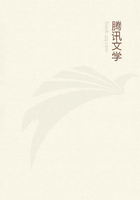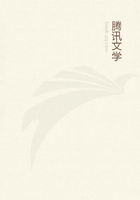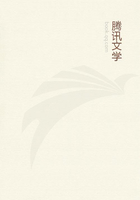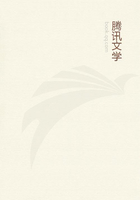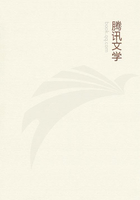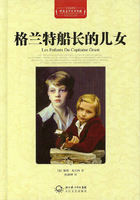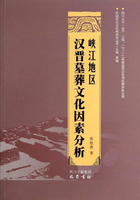A LITTLE before midday, the steamboat's bell drew to the wharf on the Volga an unusually large concourse of people, for not only were those about to embark who had intended to go, but the many who were compelled to go contrary to their wishes.
The boilers of the Caucasus were under full pressure; a slight smoke issued from its funnel, whilst the end of the escape-pipe and the lids of the valves were crowned with white vapor.
It is needless to say that the police kept a close watch over the departure of the Caucasus, and showed themselves pitiless to those travelers who did not satisfactorily answer their questions.
Numerous Cossacks came and went on the quay, ready to assist the agents, but they had not to interfere, as no one ventured to offer the slightest resistance to their orders.
Exactly at the hour the last clang of the bell sounded, the powerful wheels of the steamboat began to beat the water, and the Caucasus passed rapidly between the two towns of which Nijni-Novgorod is composed.
Michael Strogoff and the young Livonian had taken a passage on board the Caucasus. Their embarkation was made without any difficulty.
As is known, the podorojna, drawn up in the name of Nicholas Korpanoff, authorized this merchant to be accompanied on his journey to Siberia. They appeared, therefore, to be a brother and sister traveling under the protection of the imperial police.
Both, seated together at the stern, gazed at the receding town, so disturbed by the governor's order. Michael had as yet said nothing to the girl, he had not even questioned her.
He waited until she should speak to him, when that was necessary.
She had been anxious to leave that town, in which, but for the providential intervention of this unexpected protector, she would have remained imprisoned. She said nothing, but her looks spoke her thanks.
The Volga, the Rha of the ancients, the largest river in all Europe, is almost three thousand miles in length.
Its waters, rather unwholesome in its upper part, are improved at Nijni-Novgorod by those of the Oka, a rapid affluent, issuing from the central provinces of Russia. The system of Russian canals and rivers has been justly compared to a gigantic tree whose branches spread over every part of the empire.
The Volga forms the trunk of this tree, and it has for roots seventy mouths opening into the Caspian Sea. It is navigable as far as Rjef, a town in the government of Tver, that is, along the greater part of its course.
The steamboats plying between Perm and Nijni-Novgorod rapidly perform the two hundred and fifty miles which separate this town from the town of Kasan. It is true that these boats have only to descend the Volga, which adds nearly two miles of current per hour to their own speed;but on arriving at the confluence of the Kama, a little below Kasan, they are obliged to quit the Volga for the smaller river, up which they ascend to Perm. Powerful as were her machines, the Caucasus could not thus, after entering the Kama, make against the current more than ten miles an hour. Including an hour's stoppage at Kasan, the voyage from Nijni-Novgorod to Perm would take from between sixty to sixty-two hours.
The steamer was very well arranged, and the passengers, according to their condition or resources, occupied three distinct classes on board.
Michael Strogoff had taken care to engage two first-class cabins, so that his young companion might retire into hers whenever she liked.
The Caucasus was loaded with passengers of every description.
A number of Asiatic traders had thought it best to leave Nijni-Novgorod immediately. In that part of the steamer reserved for the first-class might be seen Armenians in long robes and a sort of miter on their heads; Jews, known by their conical caps; rich Chinese in their traditional costume, a very wide blue, violet, or black robe;Turks, wearing the national turban; Hindoos, with square caps, and a simple string for a girdle, some of whom, hold in their hands all the traffic of Central Asia; and, lastly, Tartars, wearing boots, ornamented with many-colored braid, and the breast a mass of embroidery.
All these merchants had been obliged to pile up their numerous bales and chests in the hold and on the deck; and the transport of their baggage would cost them dear, for, according to the regulations, each person had only a right to twenty pounds' weight.
In the bows of the Caucasus were more numerous groups of passengers, not only foreigners, but also Russians, who were not forbidden by the order to go back to their towns in the province.
There were mujiks with caps on their heads, and wearing checked shirts under their wide pelisses; peasants of the Volga, with blue trousers stuffed into their boots, rose-colored cotton shirts, drawn in by a cord, felt caps;a few women, habited in flowery-patterned cotton dresses, gay-colored aprons, and bright handkerchiefs on their heads.
These were principally third-class passengers, who were, happily, not troubled by the prospect of a long return voyage.
The Caucasus passed numerous boats being towed up the stream, carrying all sorts of merchandise to Nijni-Novgorod. Then passed rafts of wood interminably long, and barges loaded to the gunwale, and nearly sinking under water. A bootless voyage they were making, since the fair had been abruptly broken up at its outset.
The waves caused by the steamer splashed on the banks, covered with flocks of wild duck, who flew away uttering deafening cries.
A little farther, on the dry fields, bordered with willows, and aspens, were scattered a few cows, sheep, and herds of pigs.
Fields, sown with thin buckwheat and rye, stretched away to a background of half-cultivated hills, offering no remarkable prospect.
The pencil of an artist in quest of the picturesque would have found nothing to reproduce in this monotonous landscape.

